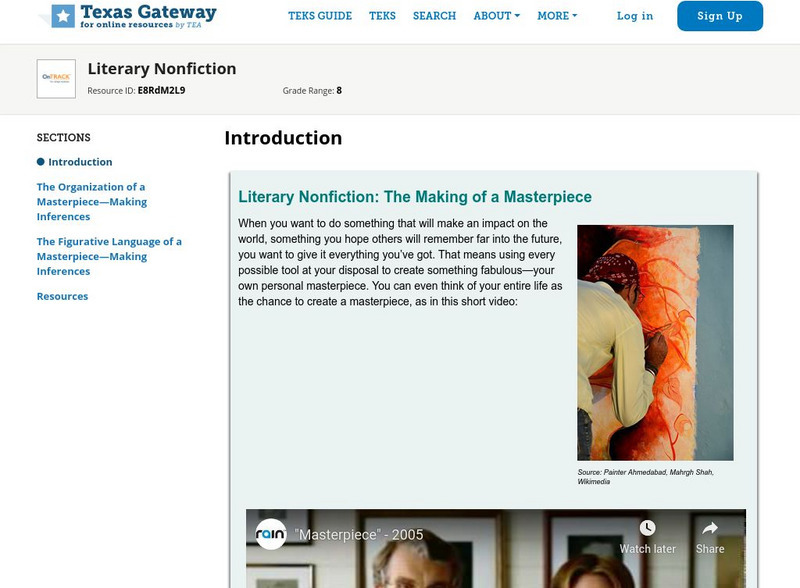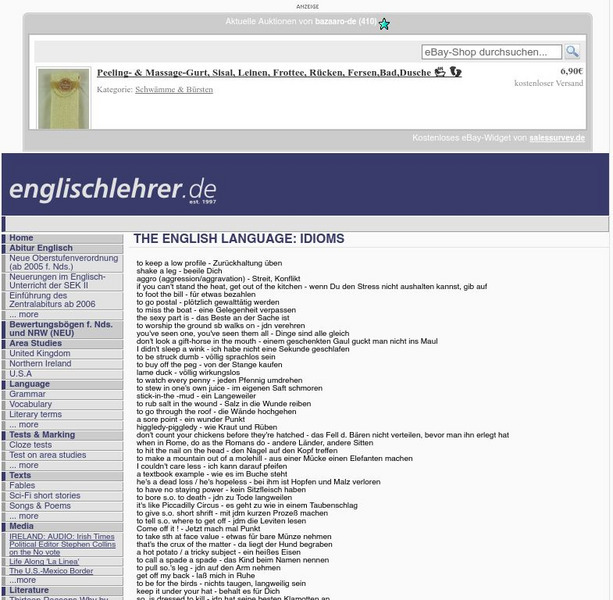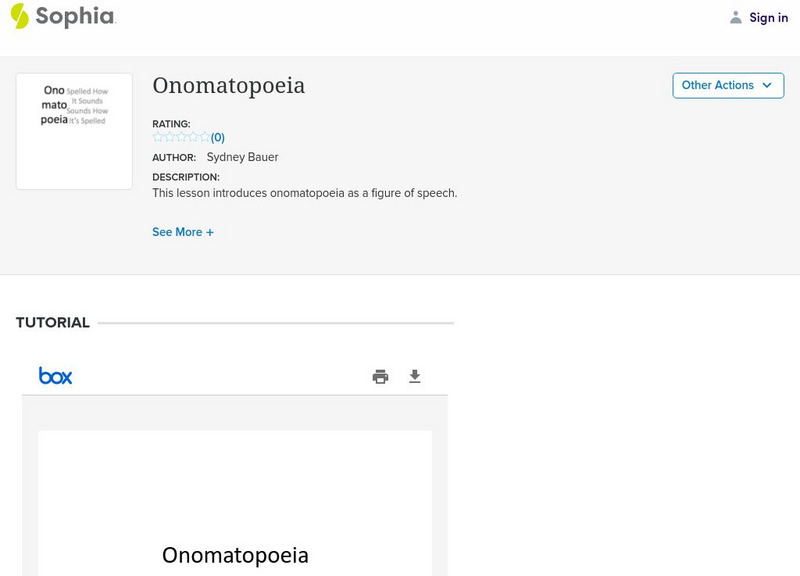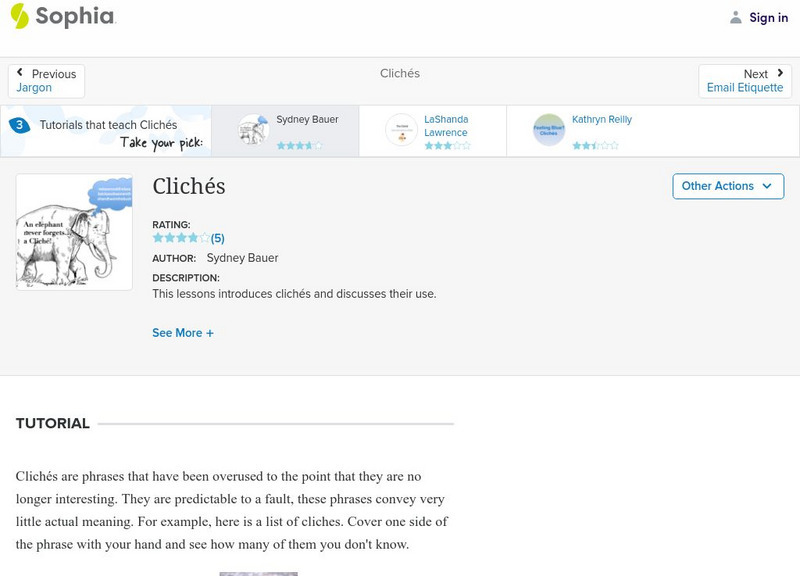TES Global
Blendspace: Idioms, Adages, Proverbs
A six-part learning module with links to texts and videos to use while learning about idioms, adages, and proverbs.
University of Victoria (Canada)
U Vic Writer's Guide: Literary and Rhetorical Terms: An Alphabetical List
This is an alphabetical list of literary and rhetorical terms; each includes a definition and examples.
Annenberg Foundation
Annenberg Learner: Syntax Store
The colors listed in the boxes represent different parts of speech: noun, verb, adjective, adverb, etc. Figure out which colors represent which part of speech and then use the colors to create proper sentences.
Department of Defense
Do Dea: Thinking Skills
In this self-guided course, you will be looking at several pieces of literature in many different forms. This unit will teach you some principles of thinking and learning and how to use basic literary terms in the analysis of literature....
Ted Nellen
Cyber English (By Ted Nellen): Puns
This is a glossary entry for the term "Puns" including a definition and an extensive list of examples.
Ted Nellen
Cyber English (By Ted Nellen): Syllepsis
This is a glossary entry for the term "Syllepsis" including definitions and links to more information and examples.
Sophia Learning
Sophia: Personification
Seven slides introducing and providing examples of personification. Slides also explain the purpose and impact of personification within a text, and examples come from "Rappaccini's Daughter" by Nathaniel Hawthorne.
Other
Blinn College: Bryan Writing Center: Poetry Explication [Pdf]
Provides guidelines for analyzing poetry. Students must make certain they have a basic understanding of a poem, then analyze the language used. A set of 26 questions is offered that students can reference to help them analyze a poem....
Texas Education Agency
Texas Gateway: Literary Nonfiction
Learn how to analyze literary nonfiction, particularly speeches, by making inferences and drawing conclusions based on evidence in the text.
Other
St. Edward's University: Devices: Assonance/consonance
Defines and compares the use of assonance and consonance in poetry, with examples.
Alabama Learning Exchange
Alex: Producing Poetic Podcasts (Hey, That's Alliteration!)
In this culminating lesson for a poetry unit, students will create a video podcast that summarizes a specific poem, analyzes the poet's use of literary elements, and infers the meaning of the poem (theme). The podcast must use a talk...
Alabama Learning Exchange
Alex: Literary Elements in Literature
This lesson is applicable to any story or novel in literature. The students will be introduced to twelve literary elements through a podcast. They will then be divided into small groups to complete activities involving story and literary...
Other
The English Language: Idioms
Idiomatic expressions relating to color, animals, parts of the body and even some German figures of speech.
English Club
English Club: Learn English: Vocabulary: Topic Vocabulary Reference
Links to information and lists of English words and phrases by category. Includes information on the difference between a dictionary and thesaurus, synonyms and antonyms, confusing words, figures of speech, eponyms, euphemisms, sayings,...
Claremont Institute
Founding.com: John C. Calhoun
A collection of speeches given by John C. Calhoun on why slavery should not be abolished.
ClassFlow
Class Flow: Proverbs
[Free Registration/Login Required] In this flipchart the student identifies the characteristics of various genres and produces evidence of reading that responds to and analyzes the effects of sound, figurative language, and graphics in...
Math Slice
Math Slice: Jumanji Slice Special Test
Test your knowledge of familiar idioms with this succinct quiz. Assessment is scored online and could possibly be used as an assessment tool.
Georgia Department of Education
Ga Virtual Learning: The Elements of Poetry [Pdf]
This is a 2-page PDF of a chart that lists eight elements of poetry, questions to ask concerning each element, and tips and explanations to aid the understanding of each element. RL.9-10.5 text structure effects
Claremont Institute
Founding.com: George Washington
A collection of letters and documents written by George Washington. His will is also here.
Sophia Learning
Sophia: Cliches: Lesson 1
This lessons introduces cliches and discusses their use. It is 1 of 4 in the series titled "Cliches."
ClassFlow
Class Flow: Onomatopoeias
[Free Registration/Login Required] Students will learn that onomatopoeias are words that imitate sounds. Using them can enhance writing and poetry.
New Deal Network
New Deal Network: Selected Works of Henry A. Wallace
Henry A. Wallace was one of FDR's most trusted advisors. Find an essay about his life along with the transcripts of many speeches given during his time as a public figure.
Claremont Institute
Founding.com: Abraham Baldwin
This is the content of discussions involving Abraham Baldwin that took place at the Federal Convention on August 22, 1787, Much of it is on the immorality of slavery.
Other popular searches
- Teaching Figures of Speech
- Figures of Speech Irony
- Figures of Speech Quiz
- Using Figures of Speech
- Figures of Speech Exam
- Literary Figures of Speech
- Figures of Speech Stories
- Figures of Speech Worksheets
- Figures of Speech Lesson
- Figures of Speech Hyperbole
- Meanings of Figures of Speech
- Figures of Speech Activities



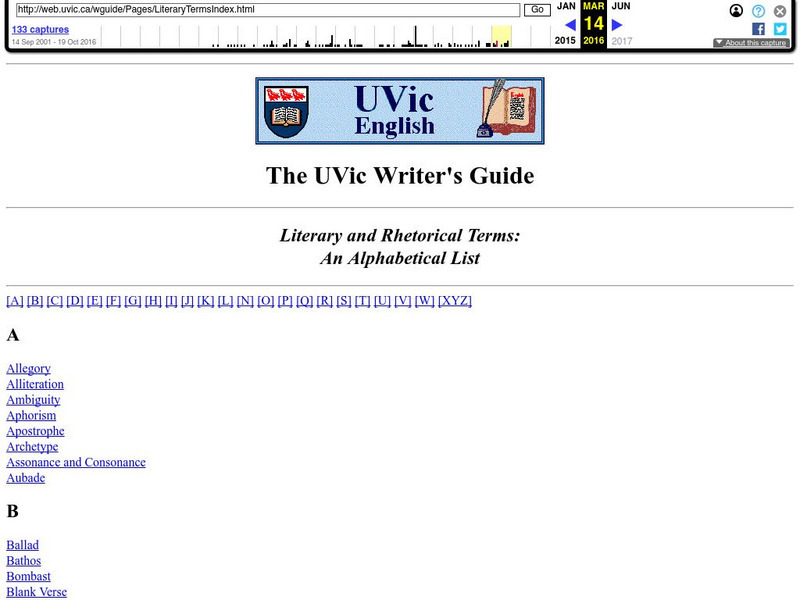

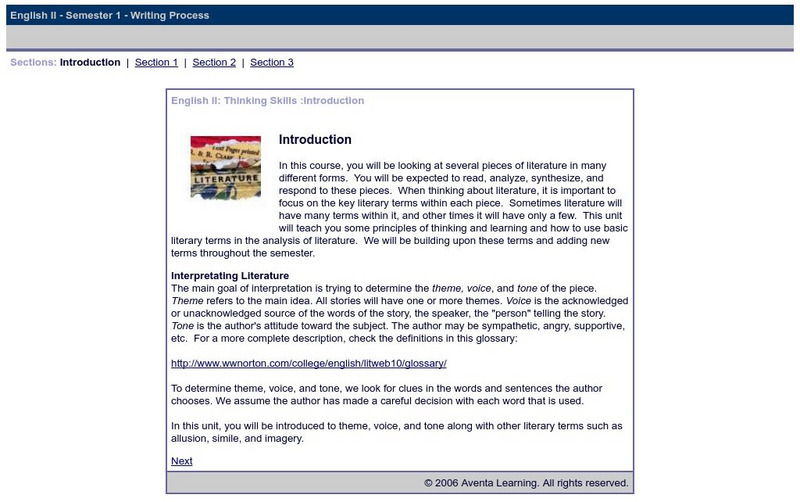


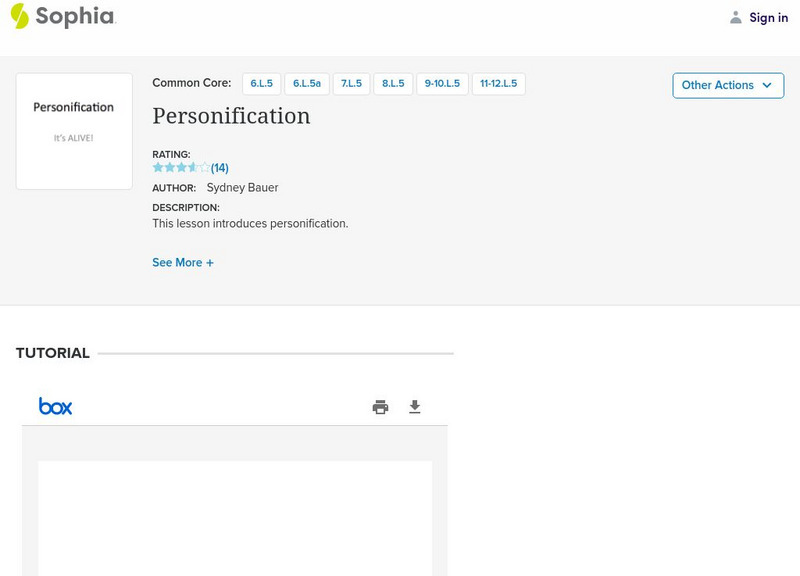
![Blinn College: Bryan Writing Center: Poetry Explication [Pdf] Activity Blinn College: Bryan Writing Center: Poetry Explication [Pdf] Activity](https://d15y2dacu3jp90.cloudfront.net/images/attachment_defaults/resource/large/FPO-knovation.png)
